Neoliberalisms: From 1938 to the 21st Century
The Changing Face of Liberalism
With the 20th century, a new liberalism was becoming prominent. Classical liberals had held that the proper role of government is to protect individual liberty, but they did not support any particular form of government. The new liberals of the 20th century agreed with the classical liberals on the raison d'être or purpose of government, but they also added to this the notion that representative democracy was the form of governance most suited to achieving this goal. Classical liberalism had only stated that maximizing liberty ought to be the purpose of civil society, whereas this new liberalism went further and asserted that democracy is the form of government most suited to pursuing that purpose. The new liberalism promoted liberal democracy as the proper form and function of government. Its proponents believed that democracy and the market economy belong together. They advocated liberalism AND democracy; that's what distinguishes modern liberalisms from classical liberalism.

Keynesianism & New Deal Liberalism
Technically, the first "new liberals" were the Keynesians and the New Deal supporters. John Maynard Keynes was, perhaps, the first person to propose a new revisionist liberalism. However, the term neoliberalism does not apply to him. Neoliberalism proper refers to a variety of movements that arose as a reaction to Keynesianism. That being said, it is necessary to touch on Keynesianism and New Deal liberalism in order to give a clear picture of neoliberalism.
Capitalism and liberal democracy seemed to be doing well for quite some time. The "booming 20s" looked good. The late 19th century seemed to be a golden age of laissez-faire. The "internal contradictions" and "inherent instability" of capitalism that socialists had warned about seemed like a thing of the distant past to most Americans. The Great Depression caught everyone off guard and liberals (i.e. advocates of the market system) were left wondering what had caused the crisis.
Even prior to the Great Depression, Keynes had written A Tract on Monetary Reform and had observed that a laissez-faire approach to money was flawed. Money, like any other commodity, must be produced. When the manufacturer of widgets sees an increase of demand for his product there will be an increase in the price, but the manufacturer will also respond to the demand signal by increasing production. When the demand for widgets increases, the producer ought to produce more widgets. The same rules apply to the monetary sphere. When the demand for money increases (which is always reflected in an increase in the value of money), the central bank ought to increase the supply of money. The goal of the money issuer ought to be to stabilize the price level and keep the value of money stable. Money ought to be a store of value and a medium of exchange. It ought not to fluctuate in value.
After the Great Depression, Keynes' doubts about laissez-faire became even stronger. While he remained a liberal in principle, he became convinced that the Great Depression and the boom-and-bust cycle in general was a result of the failure of classical liberalism and the laissez-faire approach to political economy. During the recession, the money supply contracted and jobs disappeared. This set off what Keynes called a deflationary spiral. The economic downturn resulted in falling prices and lower wages. The lower wages in turn resulted in a decrease of "aggregate demand"—workers ended up spending less money because they made less money. The decrease in spending and consumption resulted in fewer profits and pushed prices even lower. Employers ended up having to lower wages even more. Unemployment also became a significant problem. Consumer demand in general (aggregate demand) simply wasn't high enough to maintain full employment. Unemployment is the lowest wage of all—zero. Recessions are a recurring problem under capitalism and each new recession seemed to be worse than the last. Each new recession hits harder and drags out longer than the one before it. Keynes thought the solution to this problem was to turn to government in order to boost aggregate demand. When private sector consumption falls, public sector consumption ought to increase. (Cf. John Maynard Keynes, The General Theory of Employment, Interest and Money)
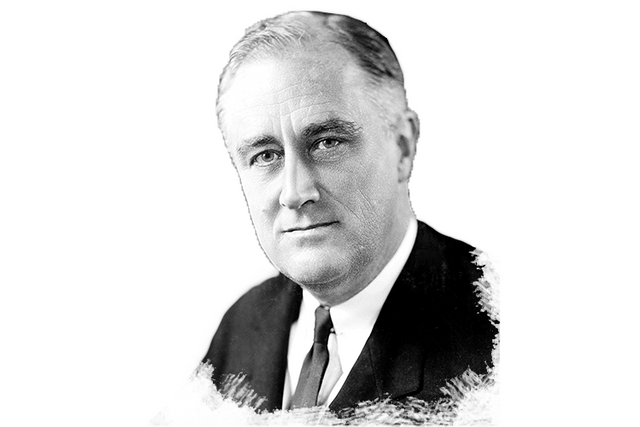
In response to the Great Depression, Franklin Delano Roosevelt launched the New Deal, increasing public spending in order to make up for the decrease in private spending. To counteract unemployment (the ultimate lowest wage), they created the Public Works Administration. The government awarded contracts to a myriad of private companies for the construction of roads, hospitals, airports, schools, bridges, etc. The American economy finally made a full recovery from the Great Depression when the United States entered into WWII. Aggregate demand was boosted by military spending, which pulled America out of the Depression. The theories of Keynes seemed to be correct and the vast majority of intellectuals converted to Keynesianism.
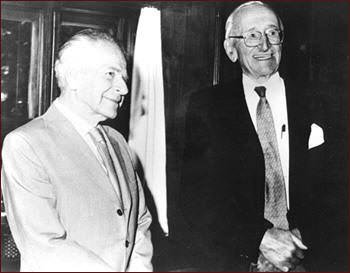
Where Neoliberalism Came From
After the debacle of the Great Depression, most intellectuals had concluded that classical liberalism had failed. However, many liberals were not comfortable with Keynesianism and New Deal liberalism, which they saw as a departure from the liberal tradition. They were concerned about the growth of government and wary of interventionism, which they saw as a road creeping towards socialism. These intellectuals got together to forge a different "new liberalism," one that moved beyond classical liberalism but also avoided the errors of Keynesianism. Thus was born neoliberalism.
At the Walter Lippmann Colloquium (a sort of precursor to the Mont Pelerin Society), leading intellectual proponents of liberal democracy got together in order to discuss what had went wrong and to forge a "new liberalism." It was from this conference that the term "neoliberalism" came. The term was coined by Alexander Rüstow, one of the fathers of the German social market economy philosophy. The new liberals that attended the conference were united in their understanding that liberalism and democracy were inseparable. They also agreed that big government was not the right solution to the problems posed by economic crises. However, they disagreed on what the appropriate solution is. They could not come to any agreement on what exactly had caused the Great Depression or how such catastrophes could be avoided by liberal democracies going forward. From the very outset, neoliberalism was divided against itself.
The true or third-way neoliberals, like Alexander Rüstow, Wilhelm Röpke, and Karl Popper, held that classical liberalism had failed because market fundamentalism is flawed—markets, while beneficial and desirable, are not perfect. Sometimes it is necessary for government to intervene in order to correct market failures. These third-way neoliberals opposed central-planning and Keynesian meddling, asserting that government intervention should be kept to the minimum necessary for correcting market failures and ensuring that markets work efficiently and fairly. To this day, in Germany "neoliberalism" refers exclusively to an approach to liberal democracy that rejects market fundamentalism in favor of what Karl Popper would call "piecemeal social engineering."
In opposition to these third-way neoliberals, a faction represented by F. A. Hayek and Ludwig von Mises, held that interventionism was never the solution at all. Mises was a proponent of laissez-faire and his position really didn't depart much from that of classical liberalism. Mises rejected neoliberalism altogether and accused the rest of the group of being socialists. Hayek was a critic of laissez-faire but didn't depart much from classical liberalism other than in advocating democracy. Milton Friedman was sort of the oddball of the group, agreeing with Hayek and Mises in their opposition to piecemeal social engineering, but also insisting that government had to constantly intervene via monetary policy in order to prevent another Great Depression from occurring, on account of which Hayek insisted that Friedman was still fundamentally a Keynesian.
The core insight and unifying aspect of neoliberalism was its recognition that government creates the framework for markets. As Dorian Electra put it, "rules and social order are the essentials"—she was speaking specifically about the views of Hayek, but the statement applies to the views of neoliberalism as a whole. Governments create and regulate monetary systems, they create the rules that establish property rights, and they provide the regulations and institutions needed for the enforcement of contracts and the resolution of disputes. Capitalism doesn't work without police and courts. For the most part, neoliberals thought that government's role ought to be strictly limited. The government ought to focus on establishing appropriate rules and regulations to create a framework within which the market can self-organize efficiently. The right framework would make Keynesian interventionism unnecessary.
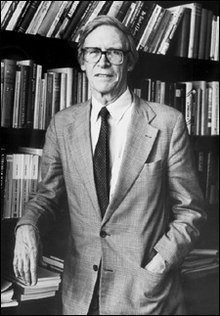
Classical Neoliberalism
This classical neoliberal tradition consists of figures such as F.A. Hayek, Wilhelm Röpke, Alexander Rüstow, Walter Eucken, Milton Friedman (prior to the 1970s), and Karl Popper. It can be broken down into three distinct varieties of neoliberalism:
(1) laissez-fairesque neoliberalism or "quasi-libertarian" neoliberalism (Hayek, Friedman)
(2) "extended ordoliberalism", sociological neoliberalism, or the social market economy approach (Rüstow, Röpke, Eucken)
(3) dialogic liberalism, the "open society", "political liberalism", etc. (Popper, Soros)
Modern libertarianism and the new neoliberalism of Reagan/Thatcher evolved out of the laissez-fairesque strain of neoliberalism. This strain of neoliberalism advocated minimizing government interference in the market, but was still conservative enough to recognized the need for limited government on a democratic basis. They recognized that government furnishes the rules and social order without which markets cannot function. While advocating minimal government, Hayek and Friedman both advocated universal basic income, asserting that government should provide all individuals with a basic safety net. Hayek was a critic of laissez-faire market fundamentalism but still leaned in that direction and was firmly opposed to Keynesianism and interventionism.
In contrast to this laissez-fairesque strain, there was the extended ordoliberal tradition, which praised the efficiency of markets but also recognized the reality of market failures. Its proponents championed the idea of the "social market economy," which rose to prominence in post-WWII Germany and is responsible for the wirtschaftswunder ("economic miracle") of German prosperity and productivity under liberal democracy after the fall of the Nazi regime. Ordoliberalism is more conservative than social democracy, but recognizes a greater role for government than laissez-fairesque neoliberalism does. This strain of neoliberalism considered itself a "third way," beyond (or between) conventional capitalism and socialism. It saw a greater role for the welfare state, but also recognized the dangers of socialism.
Finally, there is dialogic liberalism, entailing "deliberative" democracy and a vision of "the open society." This is a more progressive strain of neoliberalism but one that remains relatively conservative. It emphasizes the importance of education and free speech. Popper proposed "piecemeal social engineering" as a means of gradually reforming society in a progressive manner. Note that this is not to be confused with either social democracy or New Deal liberalism. While this strain of neoliberalism bears striking similarities to both social democracy and New Deal liberalism, it also differs significantly from those ideologies. Firstly, it does not want big government and therefore does not advocate a robust interventionist state. Secondly, it emphasizes the importance of dialectic and deliberative democracy above all else, emphasizing the importance of liberal dialogue and liberal education in shaping a free society. Social democracy places its emphasis on the promotion of welfare, making that its primary goal. New Deal liberalism sees the job of government as promoting full employment and ensuring that the economy remains productive. While proponents of dialogical liberal democracy may sometimes support the same policy proposals as social democrats and New Deal liberals, their motivating principles and core values are quite different, though not necessarily always incompatible.
It is worth noting that this dialogic neoliberalism of Karl Popper and George Soros closely resembles the "political liberalism" of John Rawls and John Dewey and overlaps with the "third way" or "radical centrist" variety of social democracy espoused by Anthony Giddens.
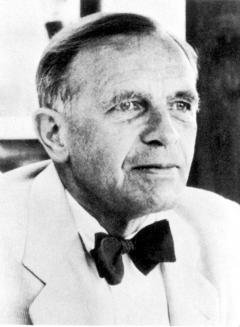
Why Is There So Much Variance Within The Liberal Tradition?
There are two reasons that modern liberalism encompasses such a wide variety of ideas. The first is that classical liberalism was always somewhat vague on the definition of liberty. The second is that different liberals have had different philosophical and epistemological frameworks.
There has essentially always been two traditions within liberalism. Hayek notes that "the ancestors of modern liberalism" fall into two camps, distinguishing between British liberalism (Anglican) and French liberalism (Gallican). Hayek sees this divide as being rooted in the divide between empiricism and rationalism. The British empiricist takes a more evolutionary approach to liberalism, recognizing that social institutions are the result of human action rather than human design. The French rationalist tradition seeks to base social institutions on social contract and deliberative rationality. The French tradition imagines it can design a better society, whereas the British tradition recognizes that society is the product of evolution. Thus, the British liberal tradition is more conservative, while the French liberal tradition is more radical. (Cf. Friedrich A. Hayek, The Constitution of Liberty, Chapter 4)
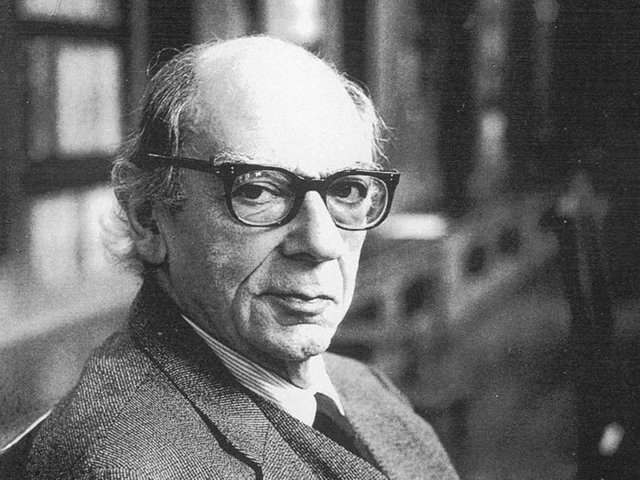
Isaiah Berlin observes two different concepts of liberty within liberalism, distinguishing between negative liberty and positive liberty. This can be seen as the difference between "the freedom from" and "the freedom to." An individual may be free from external coercion insofar as no one is physically forcing them to act against their own will, but they may not be free to act upon their own will to the extent that their choices are limited by factors out of their control. (Cf. Isaiah Berlin, Two Concepts of Liberty) Suppose that we are on a desert island and I am hoarding all the food and water. I tell you to do such-and-such or else I will not share the food and water with you. You are free in the negative sense, but not in the positive sense—you are free from active interference in your actions, but are not actually free to disobey me. If you do disobey me, I have leverage over you that allows me to effectively annihilate you without actively engaging in violence against you. The British tradition has tended to emphasize the importance of non-interference (negative liberty), whereas the French tradition has tended to emphasize a more robust conception of liberty (positive liberty). Empiricist liberals within the English tradition tend to see minimal government as the most important thing, since government interference tends to become the primary affront to liberty within civilized society. They recognize that government is necessary to secure liberty. Law and order protects people from arbitrary interference by other individuals, yet government interference remains a permanent danger. Rationalist liberals within the French tradition, however, tend to see robust and participatory democracy as essential to preserving liberty, as positive liberty entails being in control to some extent. Liberty is ensured by the democratic process of liberal democracy more so than by limiting the size and scope of government.
To put these distinctions in the context of modern American politics, negative liberty is the ideal of libertarianism whereas positive liberty is the ideal of liberalism. The conservative wing of the Libertarian Party represents the English tradition, while the more progressive members of the Democratic Party align more closely with the French tradition.
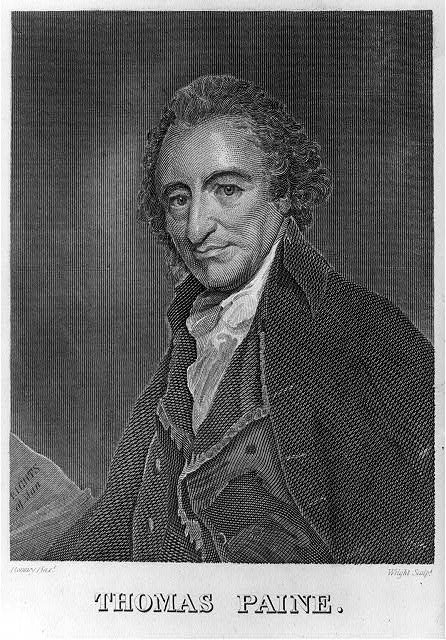
Liberal Democracy vs. Republicanism
The republican tradition overlaps with the liberal tradition, but differs significantly insofar as it defines "liberty" differently and holds a different view as to the role of government. To a great extent, liberalism is the bastard child of republicanism. Republicanism and the republican conception of liberty historically preceded liberalism. Classical liberalism developed out of republicanism as a sort of corruption of the republican tradition.
The republican tradition, like liberalism, holds that government ought to serve the purpose of securing liberty. However, republicanism defines liberty differently than liberalism does. Liberalism defines liberty as the absence of interference. Active interference obstructs negative liberty, whereas passive interference obstructs positive liberty. In both cases, the infringement upon liberty entails either the active or the passive interference of another party into the decision-making of the agent. Republicanism, on the other hand, defines liberty as the absence of domination. Liberty, in the republican conception, is the antithesis of slavery. To be free in the republican sense is to not be subject to the arbitrary will of another. This republican conception does, in fact, align with the original meaning of the word liberty. For more on this topic, see my essay on The Genealogy of Liberty.
This seems to be a somewhat subtle and insignificant distinction, but it is actually quite significant. The liberal tradition is basically schizophrenic, being unable to balance positive and negative liberty because these two concepts are fundamentally at odds with one another. Republican liberty, however, is a single coherent concept that guides the entire republican tradition. Liberalism has two guiding principles, positive liberty and negative liberty, and must choose between its own conflicting ideas at every point, whereas republicanism has a single guiding principle that can be applied at every point. Republican principles tend to lead in the direction of some sort of synthesis of distributism and social democracy, while liberal principles—because of their inconsistent nature—may lead to any number of contradictory conclusions. This is no exaggeration: neoconservatism, anarchism, and Marxism are all literally rooted in classical liberalism.
I won't drone on about republicanism here, since I have written extensively about this subject in other posts. I merely wish to emphasize that liberal democracy and republicanism are not interchangeable, even though they both advocate markets and representative democracy.
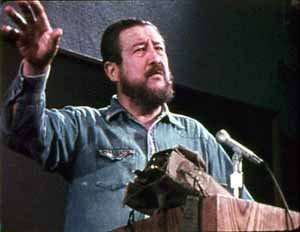
Libertarianism
The term "liberal" had been appropriated by New Deal democrats and "neo-liberalism" had already been taken, so classical liberals were looking for a new label. Starting in the mid-50s, some classical liberals had begun calling themselves "libertarians." This new libertarian movement saw itself as the genuine heir to classical liberalism, but it actually diverged from both classical liberalism and neoliberalism in several significant respects. By the late 1960s and early 70s, the modern libertarian movement had emerged. This new libertarian movement was not part of the neoliberal tradition, but it had been influenced by early neoliberal thinkers like Hayek and did end up influencing later developments within neoliberalism, which is why I am taking the time to address it here.
Murray Rothbard had traced the term "libertarian" to 19th century market-anarchists like Lysander Spooner and Benjamin Tucker. Rothbard and his ilk latched on to the Spooner-Tucker political vision and combined it with Austrian School economics as espoused by Mises and Hayek, creating a unique synthesis that is quite distinct from classical liberalism. In its pure form, libertarianism was a form of market-anarchism, which sought to abolish government altogether and replace it with totally voluntary arrangements on the free market: private police, private courts, private militaries, etc. In 1969, Karl Hess coined the term "anarcho-capitalism" as a synonym for laissez-faire capitalism as envisioned by libertarian theorists like himself and Rothbard: "Economically, this system is anarchy, and proudly so."(Karl Hess, The Death of Politics) Libertarians departed from liberalism in their advocacy of market fundamentalism and an extremist version of laissez-faire. They saw virtually no legitimate role for government.
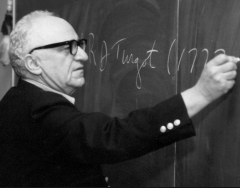
Many libertarians were more moderate and would not embrace the libertarian doctrine in its extreme anarchist form. Moderate libertarians more closely resemble classical liberals. However, a key feature of libertarianism is its tendency to define liberty in terms of property. Libertarianism tends to reduce all rights to property rights, a problematic departure from liberalism. Critics of libertarianism have, therefore, called it "propertarianism." (For more on this, see my posts here and here.)
Following from its extreme anti-government and propertarian viewpoint, libertarianism tends to equate taxation with theft. Classical liberals, however, universally advocated land value tax and followed the physiocrats in advocating the collection of ground-rent (land tax) by government. When taxes are levied against land value, taxation is not only not theft but a necessity of justice.
Libertarianism also finds itself at odds with neoliberalism insofar as it tends to be hostile to democracy. Neoliberalism holds democracy and markets to be complementary liberal institutions, whereas libertarianism is always suspect of democracy and often outright hostile to it.
In 1971, the Libertarian Party was formed. After the founding of the Libertarian Party, the anarcho-capitalists and former classical liberals coalesced into one "liberty movement" under the banner of libertarianism. James M. Buchanan can be seen as representative of the merging of these two traditions. Milton Friedman, though technically a neoliberal, even adopted the label "libertarian," helping to blur the lines between classical liberalism, neoliberalism, libertarianism, and market-anarchism. Milton's son, David, even went on to become a major proponent of anarcho-capitalist libertarianism.
Reaganesque Neoliberalism
From about 1940 until the mid-1970s, "neoliberalism" primarily referred to the moderate centrist version of liberalism that emerged following the Great Depression. This would change in the 1970s and 80s, when a new neoliberalism emerged.
Milton Friedman had a genuine neoliberal pedigree. He had been a founding member of the Mont Pelerin Society. He honestly believed that government intervention through monetary policy was necessary to guarantee economic stability and prosperity. He had also advocated various universal basic income proposals. Yet two things had changed in Friedman's thinking over the years: he had come to be substantially influenced by the market fundamentalism of the new libertarian movement and he had converted to supply-side economics after witnessing the stagflation of the 1973-1975 recession. Friedman's newfound supply-side libertarian ideology gained popularity amongst advocates of laissez-faire. Margaret Thatcher and Ronald Reagan rose to power by running on supply-side economic platforms. The new brand of supply-side neoliberalism gained notoriety and became so popular that the term "neoliberalism" became more or less synonymous with supply-side economics in common usage.
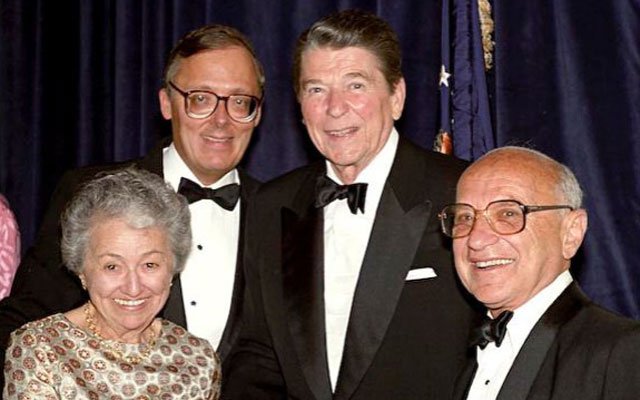
The key feature of modern neoliberalism is its emphasis on growth and adherence to supply-side economics (also referred to as "trickle-down economics"). Supply-side theory suggests that tax cuts, deregulation, and privatization result in a greater supply of goods and services at a lower price, thereby allowing the economy to grow. When the economy in general does better, the benefits will trickle down to average folks—those at the bottom will benefit from economic growth. These new supply-side neoliberals hold that economic growth tends to raise everyone up rather than increase inequality. With the increase in wealth, wages will rise and everyone will be better off. Modern neoliberalism is an ideology of infinite growth, whereas classical third-way neoliberalism often emphasized sustainability and responsible use of natural resources.
Under the influence of libertarian market fundamentalism, the new supply-side neoliberalism ended up supporting a wave of privatization. Market fundamentalist neoliberalism sought to shrink the public sector and expand the private sector. Neoliberals pushed for the privatization of government-run industries. The new supply-side neoliberalism sought to privatize utilities, the postal service, air traffic control, and even welfare. A wave of privatizations swept the U.S. and the U.K., affecting municipal services (e.g. water, sewage, electric, trash), railways, air traffic control, and even prisons. The privatization of prisons and welfare is perhaps the most controversial (nefarious?) plot of supply-side neoliberalism.
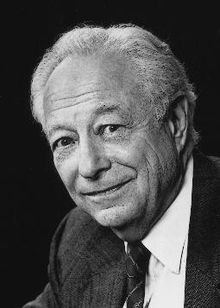
Neoconservatism
Irving Kristol is regarded as the father of neoconservatism. The neoliberal roots of neoconservatism are made clear by his essay The Neoconservative Persuasion. Following the logic of supply-side neoliberalism, neoconservatives see perpetual economic growth as desirable and feasible. They advocate the pursuit of perpetual growth through supply-side economic policies. Kristol advocates "cutting tax rates in order to stimulate steady economic growth."
While neoconservatism follows neoliberalism in advocating tax cuts to encourage economic growth, it rejects traditional notions of "fiscal responsibility" and "balanced budgets." It still follows neoliberalism in holding that economic growth will raise all classes and lead to an affluent society. Neocons believe that supply-side (trickle-down) policies will result in better conditions for everyone, raising the people at the bottom as social wealth increases overall.
"Neocons would prefer not to have large budget deficits, but...one sometimes must shoulder budgetary deficits as the cost (temporary, one hopes) of pursuing economic growth. It is a basic assumption of neoconservatism that, as a consequence of the spread of affluence among all classes, a property-owning and tax-paying population will, in time, become less vulnerable to egalitarian illusions...."—Irving Kristol (The Neoconservative Persuasion)
I do not want to go too far down this rabbit hole, but critics of neoliberalism and neoconservatism have held that, in the absence of redistributive policies like progressive taxation, all the new wealth resulting from economic growth will go to the top 1%. Rather than raising everyone, the economic growth under neoliberal/neoconservative regimes will widen the gap between rich and poor and result in greater social inequality. Tax cuts for the rich will simply result in rich people pocketing more money, rather than in rich people paying their employees more. The wealth won't trickle down as predicted. The critics of supply-side neoliberalism/neoconservatism are correct. As a matter of fact, supply-side policies have been the norm for over forty years now and wages are lower today in real terms than they were in the 1970s, so history has proven supply-side economics to be wrong. The real result of Reaganomics was a widening of the gap between the wealthy and the poor.
Neoconservatism stands in stark contrast to traditional conservatism. Traditional conservatism was rooted in Christianity, desiring to conserve religious institutions and traditional values. Neoconservatism shares these values to some extent, but puts far less emphasis on them, allowing neoconservatism to appeal also to people of a secular mindset. Furthermore, traditional conservatives advocated decentralization and were wary of big government, while neoconservatives advocate big government, especially when it comes to a strong military and military-industrial complex. In some ways, neoconservatism is a road to fascism. While Kristol is critical of Trumpism, the movement he helped build did lay the foundation for the ascendency of Trump. And, I suspect that Kristol's reason for objecting to Trumpism has to do with the fact that Trumpism weakens the power of America relative to other nation-states, not that Kristol has any principled objection to authoritarianism as such. (See my posts on traditional conservatism, here and here).
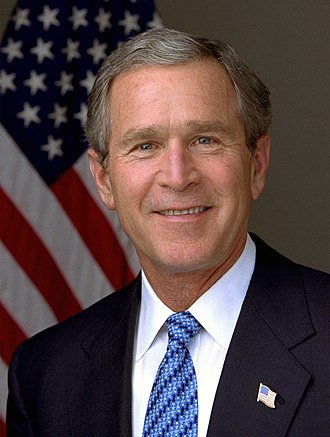
Neoconservatism emphasizes patriotism (nationalism) as a virtue and opposes any move in the direction of global governance. It sees international associations, like the EU, as suspect and warns that they will lead to a dystopian New World Order style global government if left unchecked. As already mentioned, neoconservatism seeks to maintain a strong military and military-industrial complex. The reason for this is that neocons see the "national interest" as being ideological in nature. Thus, neoconservatives advocate an interventionist foreign policy whereby American style neoliberal democracy is imposed on the world by force. The American State has become more powerful than any other nation-state as a result of historical processes that were guided by no one. According to neoconservatism, this power comes with great responsibility. America, whether it likes it or not, has a moral responsibility to police the rest of the world. "With power come responsibilities, whether sought or not, whether welcome or not."(ibid.) The neocon opposes any sort of global governance that checks the power of the American State or questions the political and economic hegemony of America, yet supports global governance as long as it manifests in the form of the arbitrary domination of America over all other nations.
Neoconservatives have also brought the Cold War mentality into the modern age. One of the primary concerns of foreign policy, according to neocons, ought to be to prevent the emergence of another super-power that might challenge American hegemony. American foreign policy ought to (1) focus on ensuring that America remains the only super-power in the world and (2) guarantee that alternative political and economic models are not allowed the opportunity to prove themselves to be superior to American neoliberalism.
Clintonesque Neoliberalism
Another rendition of neoliberalism emerged, alongside Reaganesque neoliberalism and neoconservatism, as the result of a self-critique of modern liberalism. It is associated with figures like Charles Peters, Robert Reich, the Clintons, and Emmanuel Macron. This new neoliberalism integrated aspects of supply-side neoliberalism with the modern liberalism of the Democratic Party. The quintessential exposition of this ideology is provided in Charles Peters' A Neoliberal's Manifesto.
Following Reaganesque neoliberalism, this newest form of neoliberalism put economic growth above all else. However, it was critical of Reaganomics. It was still supply-side and agreed that tax cuts could spur economic growth, but recognized that not all tax cuts do so. Reaganomics often just resulted in the rich getting richer without benefitting the average man. Clintonesque neoliberalism holds that tax cuts ought to be focused only on areas where tax cuts actually spur economic growth and increase productivity. Non-productive speculative investment ought to be taxed, whereas productive investments ought not to be taxed.
This new variety of neoliberalism was self-consciously centrist. They abandoned dogmatism and ideological purism in favor of pragmatism, seeking solutions that work and attempting to avoid the errors of both liberalism and conservatism. Like advocates of the "open society" (cf. Karl Popper), these neoliberals emphasized the importance of liberal dialogue and were critical of ideology and dogmatism. It is important to be self-critical and recognize the valid points made by those with whom you disagree. Democracy works best when there is a free exchange of ideas and information. Decent education is important for facilitating the sort of conversation and dialogue that makes democratic societies prosper, so they supported reforms to ensure that rich and poor both have access to the same quality of public education. We need better teachers and better reporters in order to make public education and the free press work right. This is necessary in order to ensure that the voting populace is well informed.

Charles Peters criticized "credentialism" for holding back productivity in America. We put far too much emphasis on credentials and too little on the ability to perform. Performance and productivity matter more than anything else. Some tasks just don't require a degree. Lawyers could be replaced by mediators without degrees or paper credentials in many cases, most notably in cases involving divorce and auto accidents. We have bad teachers who have an education degree alongside individuals without a degree who are qualified to teach—their qualification being their ability to perform the task effectively! Employees are chosen or favored based on credentials and seniority rather than on ability. America has an unnatural fetish for credentials and formal education alongside an indifference to actual performance. This hampers productivity and slows economic growth. American industry and government have become inefficient as a result.
Peters also criticized liberal intellectuals for their snobbery. Liberal intellectuals are wrong to look down on "hicks" who support bad politicians. Rather than maligning "hicks," Peters felt that neoliberals ought to try to ensure that rural folks are well informed by guaranteeing decent education through both schools and the press. Rather than maligning conservatives and their traditional values, he advocated a compromise with conservatives on religious and family values. For instance, we ought to allow prayer in public schools but forbit teachers and administrators from forcing students to participate. Instead of guided prayer, a period of silent meditation would be a nice compromise.
Clintonesque neoliberals rejected the "old liberal" unconditional admiration of unions. Unions forcing wages up without regard to productivity is, according to these neoliberals, socially harmful. When wages are too high, companies can't afford to hire as many people. The quest to drastically raise the minimum wage is problematic. The labor movement has done real harm by driving up wages, even when this has been done through bargaining rather than legislation. The old liberalism of the Democrats had become "a movement for those who had arrived" and "pulled up the ladder" for those who were seeking employment—older workers were made better off while younger folks would find it more difficult to break into the labor market as a result of liberal policies. Irresponsibly high wages harms productivity and slows (or prevents) economic growth. The Clintonesque neoliberals were not anti-labor per se. They also criticized high wages/salaries for management and CEOs, seeing these as being harmful for the very same reasons. Money spent to enrich executives ends up being wasted when it could be allocated directly to production. Clintonesque neoliberals were genuinely concerned with the plight of workers. They even "favor giving the worker a share in the ownership of his company." Wages ought to increase only when productivity and profits increase. A better approach, according to these neoliberals, is "to give the workers stock instead of money" so that they could "share in the success" of the company. (Cf. Charles Peters, A Neoliberal's Manifesto)
The neoconservatives were not fiscally conservative, especially when it came to military spending. The Clintonesque neoliberals, on the other hand, advocate a fiscally responsible approach. As of 2012, the United States was spending more on the military and "defense" than the next 10 biggest defense-spending nations combined. This keeps America from being able to effectively compete in the global market.
"One problem we're trying to address...is that American industry's ability to compete has been seriously impaired by the amount of money we have spent in the common defense compared to our competition and that we must find some dramatic way to redress the balance."—Charles Peters (A Neoliberal's Manifesto)
These neoliberals thought that the defense budget needed to be drastically cut, yet also insisted "that liberals should not content themselves with merrily opposing increases in defense spending but should find out on what weapons money is being wasted and on what weapons more should be spent."(ibid.) They also questioned the reasonableness of having a military based upon voluntary military service. Currently, the government must use wages and benefits to incentivize individuals to join the armed forces. Rather than having voluntary military service where people choose military careers for the wages and benefits, it is proposed that a "draft would be a less expensive way to meet our need for military manpower because we would no longer have to use high salaries to attract enlistees."(ibid.) These neoliberals want a strong military, just like the neocons do, but insist that government needs to be run more efficiently in order to reduce waste and unnecessary spending.
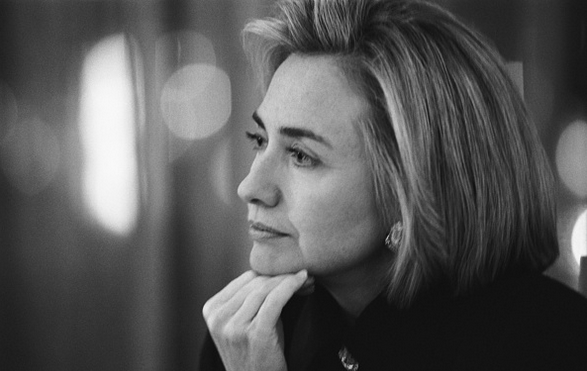
In their fiscal conservatism, the Clintonesque neoliberals opposed universal welfare programs in favor of means tested welfare. While Hayek and Friedman had advocated "universal basic income," these new neoliberals would be more likely to support "guaranteed minimum income." They objected to programs like Social Security on principle. Rich and poor alike are eligible to draw Social Security benefits. This is what makes Social Security so popular, but it also means "that a lot of money is wasted on people who don't need it."(ibid.) People who can get by without Social Security benefits or unemployment compensation ought not to be eligible to receive money from such programs. All welfare programs, including Social Security and unemployment compensation, ought to require a "means test." If one cannot prove that they actually need government assistance, then they ought not to be allowed to receive money from the government.
Like neoconservatives, Clintonesque neoliberals desire "a rebirth of patriotism, a rebirth of devotion to the interests of the national community, of the conviction that we're all in this together."(ibid.) They hold that "the national interest" ought to be put before selfish individualistic interests. While the neoconservatives had a more nationalistic conception of patriotism, these neoliberals had a more solidaristic conception of patriotism.
Conclusion
As you can probably tell by now, neoliberalism is not a single movement but a broad range of movements that developed in an attempt to renew and update classical liberalism for the 20th century. Neoliberalism attempted to solve the economic problems that confronted liberal democracy throughout the 20th century. Different varieties of neoliberalism emerged in response to different economic problems. Classical neoliberalism confronted the Great Depression, Reaganesque neoliberalism confronted the stagflation of the 1970s, and Clintonesque neoliberalism confronted the declining efficiency of American industry.
@ekklesiagora You have received a 100% upvote from @intro.bot because this post did not use any bidbots and you have not used bidbots in the last 30 days!
Upvoting this comment will help keep this service running.